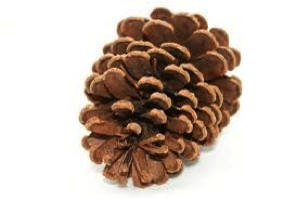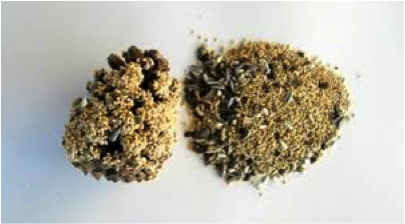Distribution and prevalence of malaria parasites among long-tailed macaques (Macaca fascicularis) in regional populations across Southeast Asia
Abstract
Background: Plasmodium knowlesi and Plasmodium cynomolgi are two malaria parasites naturally transmissible between humans and wild macaque through mosquito vectors, while Plasmodium inui can be experimentally trans‐ mitted from macaques to humans. One of their major natural hosts, the long-tailed macaque (Macaca fascicularis), is host to two other species of Plasmodium (Plasmodium fieldi and Plasmodium coatneyi) and is widely distributed in Southeast Asia. This study aims to determine the distribution of wild macaques infected with malarial parasites by examining samples derived from seven populations in five countries across Southeast Asia. Methods: Plasmodium knowlesi, P. cynomolgi, P. coatneyi, P. inui and P. fieldi, were detected using nested PCR assays in DNA samples from 276 wild-caught long-tailed macaques. These samples had been derived from macaques captured at seven locations, two each in the Philippines (n = 68) and Indonesia (n = 70), and one each in Cambodia (n = 54), Singapore (n = 40) and Laos (n = 44). The results were compared with previous studies of malaria parasites in long- tailed macaques from other locations in Southeast Asia. Fisher exact test and Chi square test were used to examine the geographic bias of the distribution of Plasmodium species in the macaque populations. Results: Out of 276 samples tested, 177 were Plasmodium-positive, with P. cynomolgi being the most common and widely distributed among all long-tailed macaque populations (53.3 %) and occurring in all populations examined, followed by P. coatneyi (20.4 %), P. inui (12.3 %), P. fieldi (3.4 %) and P. knowlesi (0.4 %). One P. knowlesi infection was detected in a macaque from Laos, representing the first documented case of P. knowlesi in wildlife in Laos. Chi square test showed three of the five parasites (P. knowlesi, P. coatneyi, P. cynomolgi) with significant bias in prevalence towards macaques from Malaysian Borneo, Cambodia, and Southern Sumatra, respectively. Conclusions: The prevalence of malaria parasites, including those that are transmissible to humans, varied among all sampled regional populations of long-tailed macaques in Southeast Asia. The new discovery of P. knowlesi infection in Laos, and the high prevalence of P. cynomolgi infections in wild macaques in general, indicate the strong need of public advocacy in related countries. Keywords: Plasmodium knowlesi, Plasmodium cynomolgi, Macaca fascicularis, Geographic distribution, Biased infection rate Read full article here: 2016_malaria-articleAuthors “Xinjun Zhang1 , Khamisah Abdul Kadir2 , Leslie Fabiola Quintanilla‑Zariñan1 , Jason Villano3 , Paul Houghton4 , Hongli Du5 , Balbir Singh2* and David Glenn Smith1*”

 On July, 8th, 2016, Circuit Court Judge James D. Sloan released his ruling that there was no violation of the Florida Sunshine Law and found for the defendant, Hendry County, in an action lawsuit, which was filed in November of 2013 and amended in May of 2015. Neighbors of a newly proposed facility on the Lee County border brought a lawsuit against the county alleging that because it never held hearings or told them about a primate facility being built in their neighborhood the county violated Florida's Sunshine Law.
In November of 2013, the Animal Legal Defense Fund (ALDF), on behalf of three Hendry County residents filed a lawsuit against Hendry County alleging Hendry County violated Florida Statutes 286.011(1) commonly referred to as the Florida Sunshine Law. In their complaint they stated that a new nonhuman primate facility, which is proposed to be located in the northeast section of the County would “confine, quarantine, and breed thousands of wild and imported non-human primates (macaques) in a rural residential neighborhood”. They further stated that “unlike domestic livestock, non-human primates are known carriers of a wide array of serious infectious diseases such as Ebola, Herpes B, tuberculosis, and parasites that may be transmitted to humans” in their complaint. They sought to declare that Hendry County’s approval of the new facilities was void because it was not considered at a public hearing after adequate public notice, to have the courts issue an injunction mandating Hendry County to rescind its approval of the new facility permits, and to issue an injunction prohibiting Hendry County from approving future wild nonhuman primate facilities in general agriculture zoning without first conducting a public hearing.
In May of 2015, the lawsuit was expanded to include a second company which entered into a contract with Primate Products Inc. (PPI) and resides on property owned by Panther Tracks LLC, which is also home for the PPI operation that has been in business for over 15 years at that location. None of the three residents for which the suit had been filed on behalf of lived in close proximity of Panther Tracks (they were over 30 miles away in the far northeast section of the county) and one of the three residents had only purchased property in July of 2013, after building permits had been issued for the expansion at Panther Tracks LLC.
Judge Sloan considered the following two points in his ruling:
On July, 8th, 2016, Circuit Court Judge James D. Sloan released his ruling that there was no violation of the Florida Sunshine Law and found for the defendant, Hendry County, in an action lawsuit, which was filed in November of 2013 and amended in May of 2015. Neighbors of a newly proposed facility on the Lee County border brought a lawsuit against the county alleging that because it never held hearings or told them about a primate facility being built in their neighborhood the county violated Florida's Sunshine Law.
In November of 2013, the Animal Legal Defense Fund (ALDF), on behalf of three Hendry County residents filed a lawsuit against Hendry County alleging Hendry County violated Florida Statutes 286.011(1) commonly referred to as the Florida Sunshine Law. In their complaint they stated that a new nonhuman primate facility, which is proposed to be located in the northeast section of the County would “confine, quarantine, and breed thousands of wild and imported non-human primates (macaques) in a rural residential neighborhood”. They further stated that “unlike domestic livestock, non-human primates are known carriers of a wide array of serious infectious diseases such as Ebola, Herpes B, tuberculosis, and parasites that may be transmitted to humans” in their complaint. They sought to declare that Hendry County’s approval of the new facilities was void because it was not considered at a public hearing after adequate public notice, to have the courts issue an injunction mandating Hendry County to rescind its approval of the new facility permits, and to issue an injunction prohibiting Hendry County from approving future wild nonhuman primate facilities in general agriculture zoning without first conducting a public hearing.
In May of 2015, the lawsuit was expanded to include a second company which entered into a contract with Primate Products Inc. (PPI) and resides on property owned by Panther Tracks LLC, which is also home for the PPI operation that has been in business for over 15 years at that location. None of the three residents for which the suit had been filed on behalf of lived in close proximity of Panther Tracks (they were over 30 miles away in the far northeast section of the county) and one of the three residents had only purchased property in July of 2013, after building permits had been issued for the expansion at Panther Tracks LLC.
Judge Sloan considered the following two points in his ruling:
 Pine cones fall under the occupational and sensory categories of enrichment. They are a natural item that the NHPs can touch, smell, look at, and even destroy. They encourage fine motor movements, such as foraging, which allows for the animal to exhibit species typical and appropriate behaviors.
Pine cones fall under the occupational and sensory categories of enrichment. They are a natural item that the NHPs can touch, smell, look at, and even destroy. They encourage fine motor movements, such as foraging, which allows for the animal to exhibit species typical and appropriate behaviors. Pine cones can also be elevated in many ways, for example:
Pine cones can also be elevated in many ways, for example: